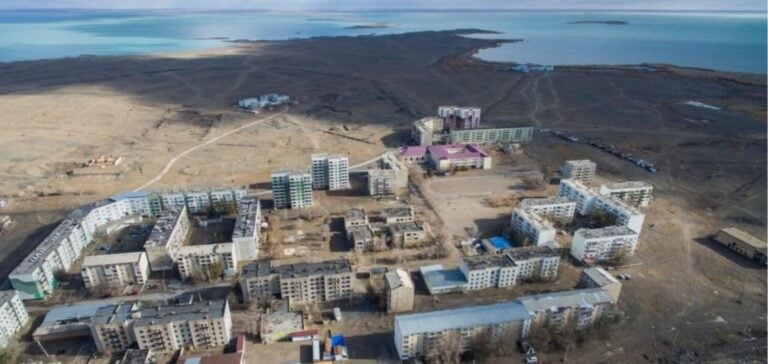President Kassym-Jomart Tokayev has announced that a national referendum will be held this autumn to decide on the construction of a nuclear power plant in Kazakhstan. This initiative aims to meet the country’s growing energy needs while reducing its dependence on fossil fuels. The debate surrounding this proposal is lively, with different opinions expressed by experts and the general public alike.
Energy context and challenges
Kazakhstan has 12% of the world’s uranium resources and will produce 43% of the world’s uranium by 2022. With its wealth of natural resources, the country has significant potential for developing a nuclear industry. The construction of a nuclear power plant is seen as a solution for stabilizing energy production and supporting economic growth. Since 2018, KNPP (Kazakhstan Nuclear Power Plant) has been preparing a feasibility study to assess the need for nuclear power, select a construction site and estimate the future plant’s energy output. The results of this study will be crucial in informing voters ahead of the referendum.
Site Selection and Future Development
At the World Nuclear Spotlight event in April, Ulken, on the shores of Lake Balkhash, was identified as the most suitable site for the nuclear power plant, with Kurchatov as the back-up region. The first plant planned would be a large reactor, but the government is also considering the use of small modular reactors to replace aging coal-fired power plants. The aim is for nuclear power to represent 5% of the national energy mix by 2035. In November 2023, a mission from the IAEA (International Atomic Energy Agency) assessed the site selection process, confirming Kazakhstan’s commitment to rigorous international standards.
International Suppliers and Outlook
Kazakhstan’s Ministry of Energy said in January 2023 that it was considering proposals from four international nuclear technology suppliers: EDF (France), China National Nuclear Corporation, Korea Hydro & Nuclear Power, and Rosatom (Russia). This strategic choice is designed to ensure that the technology adopted is both safe and efficient, in line with global best practice. The introduction of nuclear power in Kazakhstan could transform the country’s energy landscape, offering a reliable and sustainable alternative to fossil fuels. However, the success of this project will largely depend on public acceptance, hence the crucial importance of the forthcoming referendum.
The adoption of nuclear power represents a major step for Kazakhstan, potentially decisive for its energy future. If the referendum is successful, the country could not only strengthen its energy security, but also play a more significant role in global efforts to reduce CO2 emissions. The results of the referendum will be closely watched by players in the international energy sector.






















